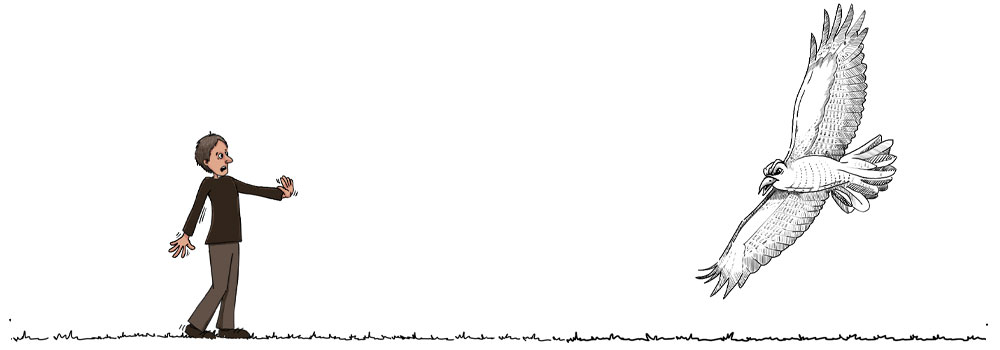Task 15 – Don’t stand in your own way
Task 15
Don’t stand in your own way

Hvar, Kroatia, 2016. Photo: Kari Aasen
Problem
Low self-esteem
I was no longer a youth and well into adulthood before I dated a girl for the first time. It was sad and a little difficult for me to understand. Only in hindsight was the reason clear to me. I had extremely bad self-confidence towards girls, and it showed. I didn’t think I was attractive, and thus I wasn’t. The problem was in my head, but it affected my ability to act. I look better in pictures from that time than how I perceived myself when looking in the mirror then. The advantage of the absence of women was that I had more time to get good at pad- dling. Then my self-confidence increased and afterwards women appeared.
Low self-esteem is a serious delusion. As a rule it is due to something we have told our- selves and hammered into our cerebral cortex until we believe it. Others have also con- tributed to this quite effectively. Often self-confidence is passed down from our parents, and it often has consequences for what we dare to try and subsequently actually do. Low self-esteem restrains us. Subconsiously, we surround ourselves with others whose self-confidence is just as bad as ours because we feel safer in their company. In this way we create a network that can be difficult to get out of.
Self-confidence is not an expression of what we can do, but of what we think we can do. We believe in what we tell ourselves. We fool ourselves. The good news is that we can also fool ourselves into having self-confidence. We can tell ourselves a different story where we are bigger and stronger, for our brains accept what we say to it. The subconscious doesn’t know what is right or wrong, it trusts our input though.
Here are some of the symptoms of low self-esteem: a lack of self-discipline, being envious of others, remaining too long in a job or relationship you should have ended, pretending as if you are doing well when you aren’t, taking things personally, having low expectations, caring too much about what others might think…Do you recognize yourself in some of this?
How do you talk to yourself? Do you speak to yourself as you would to a friend? Do you tell yourself that you can do something, or that you can’t? Does this have an effect on what you can accomplish? Do you want to change this?
How relevant is this issue for you on a scale of 1 to 6?:

Solution
Pretend as if you can
Fortunately, I became more assertive over the years. I understood how things were connec- ted, that if I tricked myself into believing I was going to accomplish something the chances of succeeding increased drastically. For a long time I was a terrible photographer. I didn’t dare approach people with my camera in such a way that I ended up taking good photos. Timidity stopped me, until I came up with something smart.
I bought a photo vest, like the pros use, and in Bangkok I bought a fake press pass card that I wore visibly on the outside of the vest. In addition I had a pin from National Geographic. That’s how I tricked myself into believing that I was a photographer on assignment. I told people that I photographed for a magazine. And suddenly I dared to take portraits of strangers and to put them where I thought the light was the best. The pictu- res turned out as good as I had wished. My borrowed self-confidence worked so well that eventually I didn’t need the vest or the card any longer.
Our most important job on a workshop is to give you the confidence and courage to beli- eve you can achieve something. The opposite of low self-esteem is courage. Courage dwarfs the need for self-esteem.
Photo assignment:
Get in touch with someone or something you feel a little secure with. It can be a friend or a place you know. Pretend as if you are going to do an interview or a report about the crowds and excitement outside a football match that you are going to go to anyway. Tell your brain that you are on assignment; it trusts that you are telling the truth. Trick yourself, and do something you actually thought you couldn’t do.
How useful was this task for you on a scale of 1 to 6?
BOOK SUGGESTION: What to Say When You Talk to Yourself by Shad Helmstetter

❞ Nothing can hurt you more than your own unattended thoughts.
Buddha
❞If I am worth anything later, I am worth some- thing now. For wheat is
wheat, even if people think it is a grass in the beginning.
Vincent van Gogh
❞No one can make you feel inferior without your consent.
Eleanor Roosevelt
❞
Act the way you’d like to be and soon you’ll be the way you’d like to act.
Bob Dylan
[note_editor]

